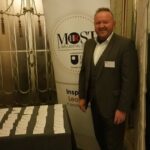What really explains how individuals end up doing their best work thus creating prosperous working lives and organisations? People science can and does for much of what many businesses espouse, aspire to, and long for.
We’ve long been told that if we find work we love, we’ll never truly work a day in our lives.
It’s a nice sentiment, but it doesn’t quite stand up to the real conditions of modern work. The truth might well be that people do their best work not just when they’re passionate, but when the system around them enables and amplifies their efforts.
At PTHR we have a phrase: “Everything is a system. And systems are everything”.
The systems of people science, psychology and behavioural economics can tell us a lot of what happens with people who seemingly experience their best work continually – and why others feel that couldn’t be further from the truth. By looking to science, we can move past any platitudes and LinkedIn posts/memes.
Self-Determination Theory
One of the most famous people science theories of all, Self-Determination Theory, is the work of University of Rochester Psychologists Edward Deci and Richard Ryan. Three things matter more than platitudes, perks or even pay rises.
- Autonomy,
- Competence, and
- Relatedness.
Deci and Ryan developed this theory in the late 1970s and into the 1980s, based on these three foundational conditions that, when met, help people sustain motivation, resilience, and wellbeing over time.
The Theory of Needs and Dan Pink’s Drive
Before that, David McClelland’s research at Harvard produced The Theory of Needs (sometimes called the Acquired Needs Theory), where it was found that we’re each driven to different degrees by a need for Achievement, Affiliation, or Power.
- People with a high need for achievement want to set and accomplish challenging goals.
- Those driven by affiliation seek harmonious relationships.
- Those with a need for power strive to influence or lead others.
McClelland’s research had similar energies and a more sophisticated take on things from Deci and Ryan’s later work (which was, popularised by Dan Pink’s Drive work as Mastery, Autonomy and Purpose).
These three theories posit that people tend to do their best work when they have some say in what and how they do things, can develop mastery, and feel a sense of connection with others.
The Progress Principle
Another important field of work on people science is from Teresa Amabile, a Professor Emerita at Harvard Business School and a leading researcher in the fields of creativity, motivation, and the psychology of everyday work life. Her early work focused on the social and environmental factors that affect creativity; she later expanded into how people experience work and what drives or drains their inner motivation.
Amabile is most known for her work on The Progress Principle. Based on a decade-long study with Steven Kramer, Amabile analysed over 12,000 daily work diary entries from knowledge workers in various industries. In 2011, the research was published in their book, The Progress Principle: Using Small Wins to Ignite Joy, Engagement, and Creativity at Work.
Making progress in meaningful work
This quote from Amabile and Kramer sums up a lot of all four bodies of work:
“Of all the things that can boost emotions, motivation, and perceptions during a workday, the single most important is making progress in meaningful work.”
Meaning is an important word for us at PTHR. It features in some people’s work so often that it’s not always noticeable. Some may find it in a cause. Others in craft. For many, it’s relational – about feeling seen, respected, and useful.
We can sometimes take matters into our hands in pursuit of meaningfulness in our work. Another scientist, Amy Wrzesniewski, researched Job Crafting with Jane Dutton and Justin Berg. The study found that people quite naturally try to reshape their roles to bring more meaning to it and make it their own. When organisations allow and support that kind of agency, performance tends to follow.
While seemingly indisputable and powerful, it’s worth noting that this kind of motivation is more fragile than we might think. Systems that stifle autonomy, obscure progress, or devalue people’s contributions are not just inefficient – they’re demoralising. You can’t push for excellence while pulling out the psychological foundations that enable it.
Indeed, famed fable-based author and consultant Patrick Lencioni explores this in his book Three Signs of a Miserable Job. When invisibility, irrelevance and immeasurement are at play, Lencioni states that we are largely unhappy and often downright miserable with our jobs. The opposite of what we’ve identified thus far.
The importance of value creation (beyond KPIs)
There’s also a strong sense that people need to know what value they are creating through their work, beyond just hitting KPIs. Meaningful work is largely not the kind that gets target-based numbers on a scorecard. For some time now, we (at PTHR) have used and promoted a broader sense of value through Oxford Saieed Professor Colin Mayer’s Six Lenses of Prosperity. They are:
- Human value (skills, capabilities, support, inclusion, wellbeing).
- Social value (trust, relationships, cohesion, togetherness).
- Intellectual value (ideas, innovation, knowledge).
- Material value (infrastructure, technology, products, assets).
- Natural value (environmental and ecological capital).
- Financial value (profitability, returns, investments, capitalisation).
None of this is new. But in organisations navigating constant change and turbulence, and thereby chasing efficiency at any cost, it might be easy to forget that people are not just part of the machinery of work – they’re themselves responsive systems. The more their environment meets core psychological needs, the more likely they are to show up with energy and ingenuity to help the urgency of the situation many enterprises find themselves in.
We’ve now set the scene for what science can tell us about People and Prosperity. In the next two features, we’ll showcase how enterprises are using people sciences to turbocharge their operational and business practices. We’ll also explore how you might bring more science into the boardroom, project planning and day-to-day operations so that the human factor isn’t left to chance.






